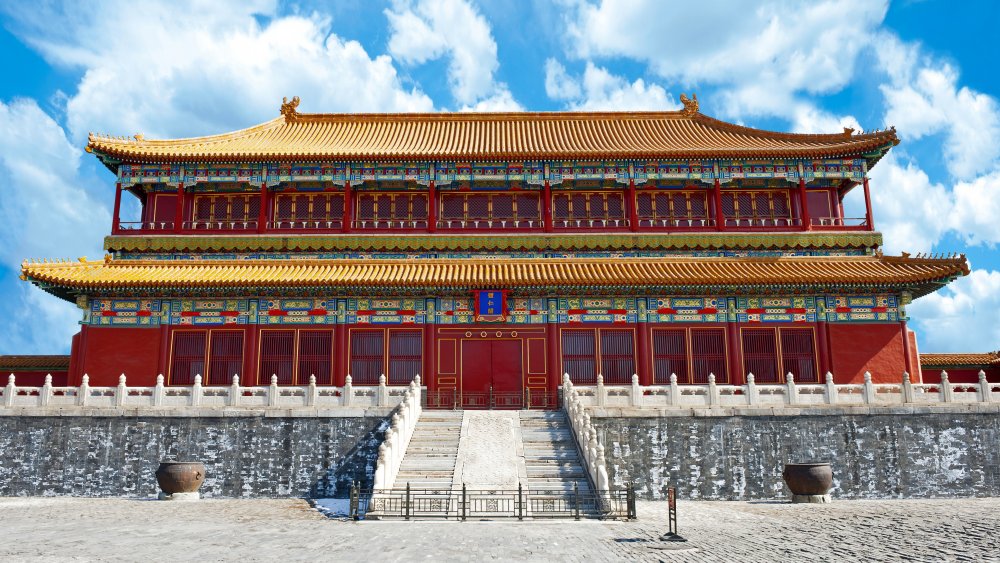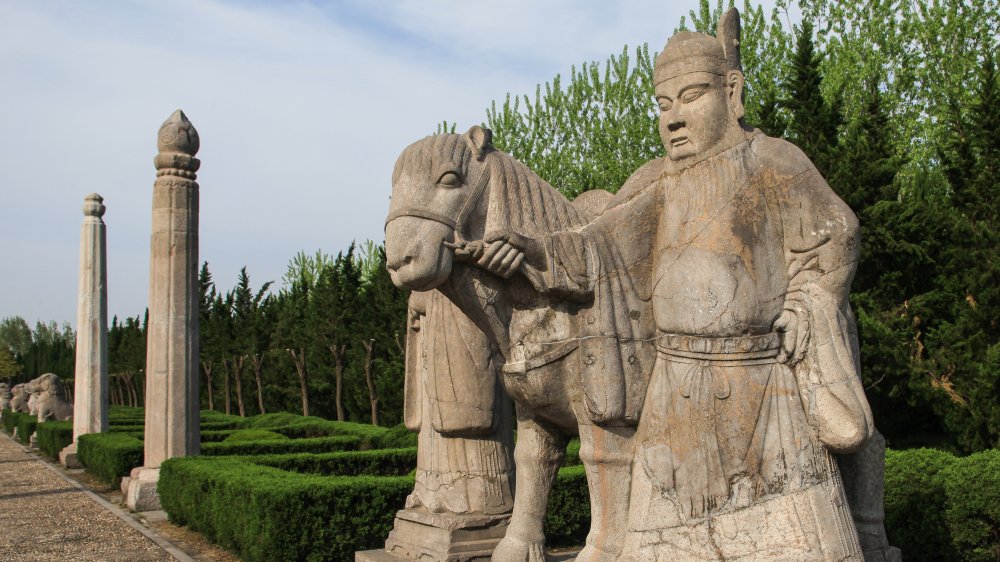The Cabbage Farmer Who Became Emperor Of China
In the movie King Ralph, a regular guy named Ralph suddenly becomes King of England. Ordinary people becoming monarchs is rare, but it does happen. Take the example of a former cabbage farmer and monk who rose to power and became Emperor of China.
Zhu Yuanzhang, the Hongwu Emperor, founded the Ming dynasty, one of China's most famous ruling dynasties. According to China Highlights, Zhu grew up in a peasant farming family. He was the youngest of seven sons and lived in poverty. Some of his brothers had to be given away so the family could eat. The Ancient History Encyclopedia wrote the family moved from house to house to avoid rent collectors. He worked the farm with his parents but they still didn't have enough money. After a plague struck, both his brother and father died. Penniless, Zhu was forced to join a Buddhist monastery, where he at least had shelter and food.
But it still wasn't an easy life, explained History. The monastery was often in debt and after a fight between Yuan dynasty soldiers and some rebels, it was burned to the ground. These rebels were called the Red Turbans and Zhu, after traveling as a wandering beggar for a while, joined them. It was with the Red Turbans that Zhu began accumulating power.
He rose to the top
Zhu made himself indispensable to the Red Turbans, per the Ancient History Encyclopedia. He married the daughter of one of its leaders and was granted an army to command. He instituted support for educated classes and surrounded himself with advisers. Zhu's men were able to take the city of Nanjing despite fighting other rebel leaders. By then, Zhu had become the most powerful man in China.
Zhu formally established the Ming dynasty, so-named to reference the god of light, explained History. Zhu took on the name Hongwu and claimed he had the divine right to rule, becoming an absolute monarch. Wary of losing his throne to violence — after all, he took it by violence — he stamped down rebellions and even established secret police.
The Ming dynasty became known for building the Forbidden City, expanding the Great Wall of China, switching to coins from paper money, a focus on administration, civil service, and education, and most of all, Ming porcelain, now familiar throughout the world. Zhu died in 1398 CE, after reigning for 30 years, and one of his 26 sons took over. Not bad for a cabbage farmer.

